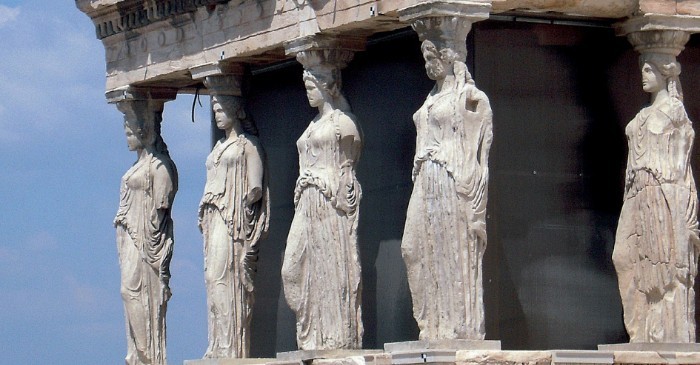Despite the worst predictions and general anxiety of Londoners, the 2012 London Olympics have proved to be a huge success. In a country where sporting passion is normally confined to football it was quite a sight to see large crowds getting carried away with excitement at such diverse sports as pistol shooting, archery and beach volleyball (ok, maybe not such a surprise there…)
Olympic Origins
While London may have hosted the Olympics more times than any other country, the world recognises Athens as the spiritual home of the Games. It was here that the first modern Olympic Games were held in 1896, but the Greek Olympic heritage goes back a lot further than the late 19th century. In the warm afterglow of London’s party it is perhaps a good time to explore the Greek sites that are forever linked to the history and spirit of the Olympic Games.
The ancient sanctuary of Olympia in Elis was home to the original Olympics, with the first Games taking place in 776 BC. Just like today the early Olympics took place every four years and included familiar events such as running, discus throwing, equestrian events, boxing and wrestling. The ancient Olympics survived wars, earthquakes and Roman invasion and were only stopped in 393 AD when the Christian Emperor Theodosius decided that the celebrations were too much of a pagan celebration for his liking. The site became neglected and slowly decayed until interest in its excavation began in the late 18th century.
The site of Olympia
Visit Olympia today and you can get a sense of the impressive scale of the buildings that housed the original Games. The Temple of Hera (wife of Zeus), is perhaps the most important Olympian site and even today it is here that the Olympic flame is lit every four years, using nothing more than sunlight and a mirror. One of the oldest temples in Greece, its ruined remains have withstood over 2500 years and have show the influence of the finest Greek and Roman architects. Opposite Hera’s temple is the site of the 13 metre high statue of Zeus, considered one of the Seven Wonders of the Ancient World.
Pan-Hellenic Games
While the Games took place in Olympia once every four years, there were pan-Hellenic games taking place at three other sites. This meant an annual cycle of events and promoted peace among the Greek city states – perhaps the ultimate objective of the Games. The other events took place at Delphi (in honour of Apollo), Argos (also in honour of Zeus) and in Corinth (in honour of Poseidon).
Visits to all of these sites provide a fascinating glimpse of ancient Greece. Argos for example is considered by some to be the most ancient city in the world. You can wander around the ruins and enjoy events such as theatrical performances and traditional craft exhibitions. Deplhi is one of the most popular places to visit in Greece (it was a tourist attraction even in ancient times) and was once the spiritual heart of the known world. Corinth meanwhile offers clues about Roman and Hellenistic life among its impressive ruins.
The Olympics may have come a long way since their opening years (when athletes often competed nude and women were strictly prohibited from taking part or even spectating). But it says something for the builders of the early Olympic stadia that they can still be appreciated today, thousands of years after the last medals were won. Now that’s an Olympic legacy to be proud of.





